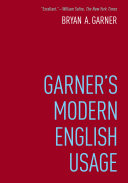
A dictionary is a listing of lexemes from the lexicon of one or more specific languages, often arranged alphabetically, which may include information on definitions, usage, etymologies, pronunciations, translation, etc. It is a lexicographical reference that shows inter-relationships among the data.
The identity of the longest word in English depends on the definition of a word and of length.

Singular they, along with its inflected or derivative forms, them, their, theirs, and themselves, is a gender-neutral third-person pronoun. It typically occurs with an indeterminate antecedent, to refer to an unknown person, or to refer to every person of some group, in sentences such as:
The word dord is a dictionary error in lexicography. It was accidentally created, as a ghost word, by the staff of G. and C. Merriam Company in the New International Dictionary, second edition (1934). That dictionary defined the term as a synonym for density used in physics and chemistry in the following way:
dord (dôrd), n. Physics & Chem. Density.
International scientific vocabulary (ISV) comprises scientific and specialized words whose language of origin may or may not be certain, but which are in current use in several modern languages.
Webster's Dictionary is any of the US English language dictionaries edited in the early 19th century by Noah Webster (1758–1843), a US lexicographer, as well as numerous related or unrelated dictionaries that have adopted the Webster's name in his honor. "Webster's" has since become a genericized trademark in the United States for US English dictionaries, and is widely used in dictionary titles.

Merriam-Webster, Incorporated is an American company that publishes reference books and is mostly known for its dictionaries. It is the oldest dictionary publisher in the United States.
Pneumonoultramicroscopicsilicovolcanoconiosis is a 45-letter word coined in 1935 by the then-president of the National Puzzlers' League, Everett M. Smith. It has sometimes been used as a synonym for the occupational disease known as silicosis, but it should not be as most silicosis is not related to mining of volcanic dusts. It is the longest word in the English language published in a popular dictionary, Oxford Dictionaries, which defines it as "an artificial long word said to mean a lung disease caused by inhaling very fine ash and sand dust".

Random House Webster's Unabridged Dictionary is a large American dictionary, first published in 1966 as The Random House Dictionary of the English Language: The Unabridged Edition. Edited by Editor-in-chief Jess Stein, it contained 315,000 entries in 2256 pages, as well as 2400 illustrations. The CD-ROM version in 1994 also included 120,000 spoken pronunciations.

The American Dialect Society (ADS), founded in 1889, is a learned society "dedicated to the study of the English language in North America, and of other languages, or dialects of other languages, influencing it or influenced by it." The Society publishes the academic journal American Speech.
The word(s) of the year, sometimes capitalized as "Word(s) of the Year" and abbreviated "WOTY", refers to any of various assessments as to the most important word(s) or expression(s) in the public sphere during a specific year.
Irregardless is a word sometimes used in place of regardless or irrespective, which has caused controversy since the early twentieth century, though the word appeared in print as early as 1795. The word is mostly known for being controversial and often proscribed, and is often mentioned in discussions on prescriptive and descriptive lexicography.

Webster's Third New International Dictionary of the English Language, Unabridged is an American English-language dictionary published in September 1961. It was edited by Philip Babcock Gove and a team of lexicographers who spent 757 editor-years and $3.5 million. The most recent printing has 2,816 pages, and as of 2005, it contained more than 476,000 vocabulary entries, 500,000 definitions, 140,000 etymologies, 200,000 verbal illustrations, 350,000 example sentences, 3,000 pictorial illustrations and an 18,000-word Addenda section.

Merriam-Webster's Words of the Year are words of the year lists published annually by the American dictionary-publishing company Merriam-Webster, Inc. The lists feature ten words from the English language. These word lists started in 2003 and have been published at the end of each year.

Garner's Modern English Usage (GMEU), written by Bryan A. Garner and published by Oxford University Press, is a usage dictionary and style guide for contemporary Modern English. It was first published in 1998 as A Dictionary of Modern American Usage, with a focus on American English, which it retained for the next two editions as Garner's Modern American Usage (GMAU). It was expanded to cover English more broadly in the 2016 fourth edition, under the present title. The work covers issues of usage, pronunciation, and style, from distinctions among commonly confused words and phrases to notes on how to prevent verbosity and obscurity. In addition, it contains essays about the English language. An abridged version of the first edition was also published as The Oxford Dictionary of American Usage and Style in 2000 and a similar version was published in The Chicago Manual of Style 16th edition in 2017. The latter includes three sections titled "Grammar", "Syntax" and "Word Usage", each with several subcategories.
Sol Steinmetz was a Hungarian American linguistics and lexicography expert who wrote extensively about etymologies, definitions and uncovered earliest recorded usages of words in English and Yiddish. A widely sought source on all things lexical, he earned recognition from William Safire in his On Language column in The New York Times Magazine in 2006 as a "lexical supermaven".

History of Swear Words is an American documentary series hosted by Nicolas Cage. The series was released on January 5, 2021, on Netflix.







